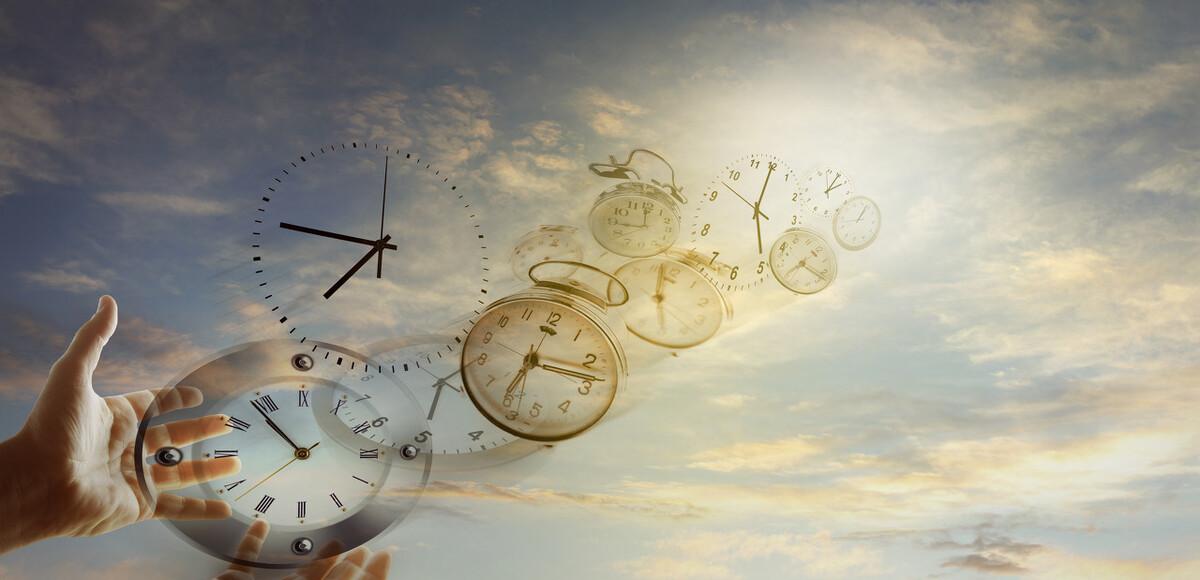When we quietly look at the clock hanging on the wall, the hands cross by second by second, time passes by second by second, about time, is it authentic?

Time
Is time caused by human subjective consciousness, or is it an objectively existing fact? This is a controversial question for humanity, it has puzzled countless philosophers, scientists and artists, and in order to solve this confusion, many people have been confused by the contradictions that time exhibits in various events.
Ludwig Boltzmann, a famous physicist, used "entropy" (the quotient of thermal energy divided by temperature in physics) to mark the degree to which heat is converted into work, which is broadly a physical quantity that measures change and always grows over time. To study time to see if it is directional, but just when the result is about to be obtained, it commits suicide, and the mystery of whether time is real and has direction has not been solved. Later, a man named Paul Ehrenfest continued to study the mystery of time, and died in a similar way.
The mystery of time has become confusing in their unfortunate encounters, and now we are slowly unraveling the mystery of time that is full of contradictions in reality.
In life, time is calculated in "seconds", every 60 seconds is equivalent to a minute, and every 60 minutes is equivalent to an hour. The second is not the smallest unit of time in nature, and the view of quantum theory holds that the smallest unit of time is Planck time, and no smaller unit of time exists in nature.
Like the concept of time "seconds" and the length measurement "meters" used in our ordinary lives, they are artificially set units of measurement, and their meaning is for the convenience of people's lives and to help people solve various problems, and they do not have much practical meaning in themselves.
Let's say there is a person who travels from A to B, assuming that the journey is 2 miles, and it takes 20 minutes to complete this journey. At a glance, it is easy to see whether the person is walking fast or slowly, and it is possible to calculate his average speed, from which we seem to see the true meaning of the existence of time, that is, to describe how fast things change.
Everything in the universe is developing and changing, making us feel a real time existence. The true nature of time is embodied in motion, and only when everything in the universe is in motion can we feel its existence. If everything in the universe were static, then time would disappear from our consciousness, we would not be able to perceive its existence, and therefore time could be considered merely something in the abstract, caused by our consciousness.
The true nature of time is motion, and it exists to measure how quickly things change, does it have a direction? If we believe that time has a direction, then we can conclude that time is irreversible and that the changes in all things are irreversible.
Scientists in both the East and the West have studied the directionality of time, including the famous black hole researcher Stephen William Hawking, who also talked about the direction of time in his book "The Theory of Everything" and did in-depth research.
The scientific community agrees that time is directional, that this direction is from the past to the future, and that it is irreversible. For example, a person standing at the edge of a lake, picking up a pebble from the ground, and then throwing it into the lake, at this time you will see the ripples of the lake, and the phenomenon you can never see is that the ripples in the lake slowly shrink, and the pebbles jump out of the water and return to the hands of people in the form of parabolas.
It is undeniable that time is directional. Maybe you will have the question that time is a subjective thing, why does it have directionality?
It can be considered that the direction of time is the direction in which things change. We all know that a complete glass cup, falling off the table, and then broken, the process can not be reversed, the broken glass cup can not be restored back to the table. The complete glass cup can be regarded as a highly ordered state, falling to the floor becomes a disordered state, the glass cup can no longer recover order from disorder, this process shows that time is irreversible, proving that it has directionality.
The glass falls from the table, falls to the ground, and then breaks, the change of this process, we see it as a piece of history, the essence of this history is time, time in this process is the abstraction of the change of things, this history is irreversible, let us have a directional understanding of time.
Excerpt from "Cosmic Code" by Zhao Ning